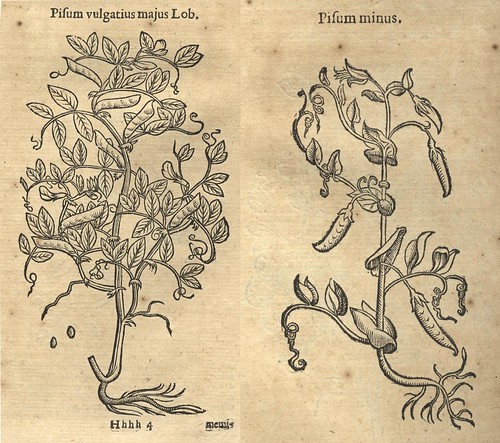Hello world, my name is Julia Specter and I am a second year MLIS student from San Jose State University, and very excited to be completing my internship here at the Academy Library. My background is in art and education, but my very first job was as a library page and I have been hooked ever since. As a collection development intern at the Academy Library, I have stumbled upon interesting images, books, and tidbits of information that I would not otherwise have found. Since much of collection development work so far has been focused on Botany and Entomology, I have taken upon myself to also learn more about both discipline, historical and contemporary scientists alike. Therefore, I decided to start from the beginning. In fact the very beginning of botany, to Theophrastus. Student, collaborator, and successor of Aristotle, Theophrastus, (4th century BCE), began the first scientific approach to botany. He is also know to be among some of the first to study medical herbs and weather’s effect on plants. Exploration of the works of Theophrastus also made me discover the wonder of the legume. A plant that most may look over in their pasta salad or soup, but as Theophrastus illustrates in his work, one of great wonder and delightful variation. Enquiry Into Plants translated in English by Arthur Hort (1961), he notes that plants such as Peas or Pisum sativum, have been used for human food and animal feed since before than 300 years BCE. Arthur Hort's book is available at the Academy Library, and can be located on the stacks at, QK41.T4 1961. Theophrastus' work on peas was only a small peek into his accomplishments he completed during his life, including the fact that he was also the first to apply principles of classification to vegetables.
 Images of Peas from Theopharasti Eresil De historia plantarum: libri decem, Graece et Latine: in quibus textum Graecum variis lectionibus, emendationibus, hiulcoru (1644).
Images of Peas from Theopharasti Eresil De historia plantarum: libri decem, Graece et Latine: in quibus textum Graecum variis lectionibus, emendationibus, hiulcoru (1644).
Another legume, liquorice, derived from two Greek terms, “sweet”, and “root” was also of interest to Theophrastus for its medicinal benefits. The liquorice, turns out to also have a deep root in human history and he found that its medical benefits have been used in different geographical regions and time periods, even before his time. Theophrastus named the plant, “the Scythian root" after the Scythian ethnic group who lived to the north and east of Greece, who had passed down their knowledge on the pharmacological uses of liquorice to the Greeks (Hort, 1961). Liquorice happens to be what I bring camping as a natural alternative to help with common aliments, but I had no idea how truly beneficial (and unoriginal) my remedy is. Lastly after reviewing Theophrastus’ translated works, it seems clear that he truly understood the interactions between living organisms and their habitats; and could he can also perhaps, be considered the first ecologist. Much like the academy's mission statement, Theophrastus work was on the bases to, "explain and explore the natural world" in order to preserve it's important history and make use of the benefits this knowledge can offer us in our daily lives.